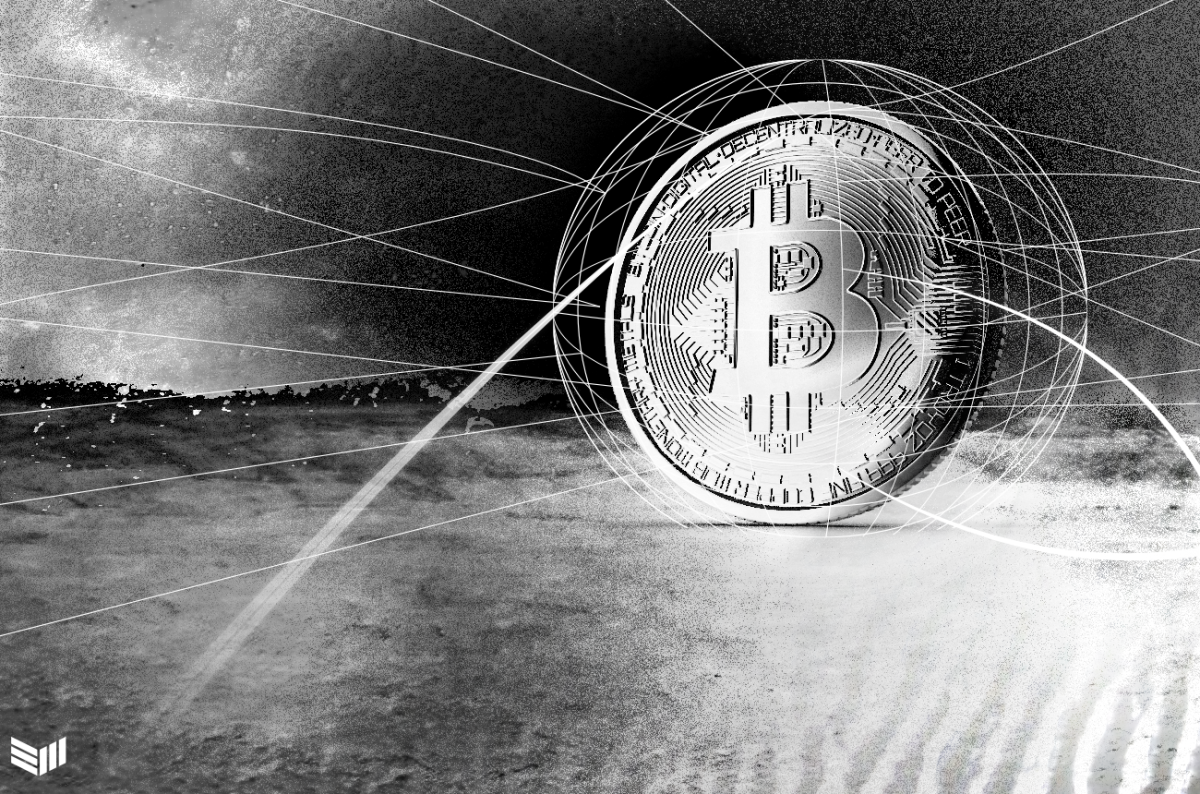Knowing that something is “obviously overvalued” is the kind of extreme hubris that opponents of Bitcoin suffer from in outsized amounts. The fundamental value is zero, says economist Steve Hanke ; as renowned and astute a writer as Nassim Taleb wrote some mathematical equations and proved (“proved”) that bitcoin’s fundamental value was nil. How could they possibly know that?
Perhaps they ran a model, mentally or computationally, plugged in some values, and out popped a bubble verdict. Could be, but when you’re testing market (ir)rationality, you’re also implicitly testing the model: “Irrational bubbles in stock prices,” concluded the father of the efficient market hypothesis, Eugene Fama, in the 1990s, “are indistinguishable from rational time-varying expected returns.”
Fundamentals, and our confidence in them, change, which is reflected in asset prices moving up or down. Against Taleb, Nic Carter had the pithiest rebuttal: No sir, it’s $34,500 — or whatever the market priced it at when he said it.
When prices fall after a rally — say, internet stocks from 200 to 2001, home prices from 2007 to 2009 or bitcoin in April 2021 — laymen and professionals alike say that it’s a bubble. But what if the price increases captured something real, and were then validated by future events?
U.S. median house prices recouped their losses four years later, and today stand about 60% higher (that’s nominally; deflated by CPI, house prices are about 16% higher in 2021 than at the peak of 2007). Internet stocks, including some of those ridiculed as hopelessly overvalued in 2001, dominate the U.S. stock market — their products and services have conquered the world.
The chattering classes’ case against Netflix, just a few years ago, was similarly overwhelming: This hopeful tech company couldn’t possibly monetize its overextended services. It would have to conquer the world for the stock’s then-valuation to make sense… and then it did exactly that. Netflix expanded services, upped its margins and offered original content. Few are the analysts today yapping about Netflix as an obvious bubble.
Bitcoin’s scope and promise is larger than any of them. What is its future value?
For the next year, I predict that bubble charges against bitcoin, of which we saw plenty this year, will fade away. Both because angry nocoiners tire of making them when they’re received with ridicule, and because the longer something stays alive, expands and flourishes, the less sense the etiquette makes. Nobody calls Amazon a bubble anymore, nor Netflix. Even Tesla’s haters have largely surrendered, accepting that what propelled it to the fifth-largest U.S. company by market capitalization is something other than bubbling madness.
No Bitcoiner takes the bubble attack seriously. Price matters, and only bubbles that fail (i.e., don’t recover) are relegated to history’s dustbin as “bubbles”; the successful ones are just promising ventures, deemed as such by a future that has hindsight as a guide.
An Escape To Freedom
Every society that collapsed into turmoil — economic, monetary, military, social or other — has had individuals contemplating when to leave. It’s not an easy decision, forecasting doom and deterioration for one’s country of birth. Many are the migrants who can tell painful stories of uprooting their lives, made increasingly impossible by authorities, famine, war or hyperinflation, for an uncertain existence elsewhere.
When staring down the “unending path to unfreedom that we’re experimenting with these days” as I argued earlier this year, what else is there but escape? When rule by the people is replaced by ruling the people , escape hatches are crucial. COVID-19 measures all over the world — and the agitated tenacity with which troves of people embodied them — showed me that lines of privacy and tyranny drawn in the sand could be approached, flirted with… and then crossed by about a mile.
Seeing the writing on the wall, I, like many others, wanted an out. In an uncertain future, you never know which place becomes a beacon of freedom (two years ago, who would have bet on Sweden? And now that it, too, is conforming — whereto?) and who will confiscate your assets. The idea of a monetary escape hatch clicked with me.
“When in doubt,” wrote Ray Dalio in his new book, “get out”:
“If you don’t want to be in a civil war or a war, you should get out while the getting is good… History has shown that when things get bad, the doors typically close for people who want to leave. The same is true for investments and money as countries introduce capital controls and other measures.”
If history is any guide, you won’t be able to peacefully and in organized fashion be able to take your assets with you: “When the flight of wealth gets bad enough,” concluded Dalio, “the country outlaws it.”
Plenty of Americans have taken that advice, though so far, only in a regional sense — the exodus from California speaks volumes. Others living under oppressive regimes, in the West and elsewhere, have taken similar actions, departing their domiciles for freer pastures elsewhere.
Bitcoin facilitates the monetary component of that shift, to move value from an unfree jurisdiction to a freer one. When fleeing a sinking ship, you need your body, your health and your loved ones. Ideally, you want your most treasured belongings too, which, thanks to bitcoin, you can now carry without anybody knowing. It comes with the more important shift of holding funds outside the purview (and control!) of your invasive government. Dan Held’s Thanksgiving wishes stated it clearest:
“With governments restricting more of our rights, what would be our light at the end of the tunnel? And with COVID, this trend has accelerated, with our movement and access to goods and resources diminished all for the sake of public safety.”
You never know what you rely on until it’s abruptly taken away. When your assets are confiscated, your money devalued, your transactions declined and your bank decides to freeze your account for whichever made-up reason it’s trumpeting next, it’s too late. Backups and escape hatches must be put in place before they’re needed.
I never saw the need for a monetary or financial escape before: I had access to inflation-protection and developed financial markets. I could move my funds wherever I wanted, whenever, for a sliver of what it would have cost just decades ago. Except for the occasional technical glitch or misadventures in poor countries, my transactions were never declined. I had not, to put it bluntly, checked my financial privilege. The last decade or so, culminating with COVID-19, convinced me that the unproblematic and worriless existence I had taken for granted might not always be that way.
Measures against this public emergency probably won’t be what ultimately does in freedom, collapses societies and ushers in the authoritarianism of dystopias. But the COVID-19 cat is out of the bag now, and the power play that rulers experimented with this year and the last is from now on available at every political negotiation table like it never was before. With only vague references to public safety and astonishingly low barriers, locking up people in their homes is now a feasible option.
The ability to escape — to get out — hasn’t been this important in generations. This time isn’t different, but this time we have Bitcoin. Perhaps that’s enough.
This is a guest post by Joakim Book. Opinions expressed are entirely their own and do not necessarily reflect those of BTC Inc or Bitcoin Magazine.







